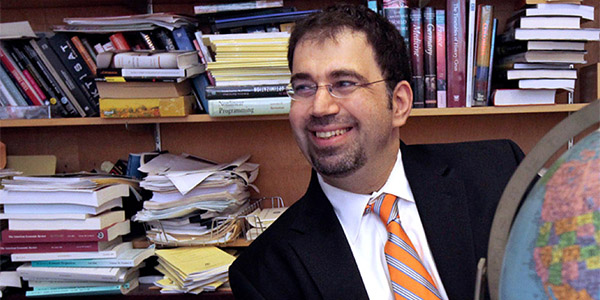3 Questions: Daron Acemoglu on the “dangerous situation” still facing the U.S.
The author of “The Narrow Corridor,” about the battle to sustain democracy, weighs in on the country’s political condition.

Two stunning events on Jan. 6 — rioters invading the U.S. Capitol, and roughly 140 GOP members of Congress voting not to certify the presidential election results in certain states — have intensified national concern about the future of American democracy.
To extend the discussion, MIT News spoke with MIT economist and Institute Professor Daron Acemoglu, who has written extensively about democratic institutions, political dynamics, and the way democracy increases economic growth. Acemoglu’s most recent book, “The Narrow Corridor,” co-authored with James Robinson of the University of Chicago and published by Penguin Random House in 2019, contends that we overestimate the supposedly “brilliant design” of the U.S. Constitution as a bulwark against antidemocratic forces. Instead, rights and liberties in the U.S. have depended upon “society’s mobilization … at every turn” throughout our history.
Indeed, Acemoglu asserts, while a state can protect weaker citizens within society, we must also work to limit the power of the state. Liberty and democracy thus exist in a “narrow corridor” between lawnessness or authoritarianism; social action is needed to protect liberty when the state starts to discard the rule of law. We asked Acemoglu to reflect upon U.S. events through this framework.
Suggested links